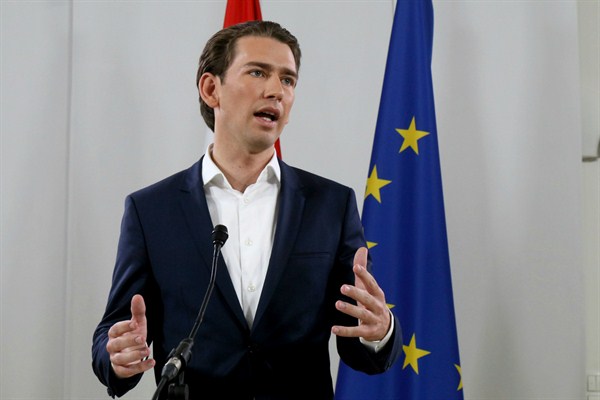After a political shake-up last month, Austria is set to be Europe’s next battleground in the fight between mainstream politicians and far-right populists. On May 10, after months of political bickering and party infighting, Reinhold Mitterlehner stepped down as Austria’s vice chancellor and chairman of the center-right Austrian People’s Party, or OVP. That effectively ended Austria’s grand governing coalition between the OVP and the center-left Social Democratic Party, or SPO. A few days later, Chancellor Christian Kern, who leads the SPO, announced that Austria would hold snap parliamentary elections on Oct. 15.
Aside from growing frictions within the ruling coalition, Mitterlehner’s move to step down was triggered by mounting dissatisfaction within his own party, which he had been struggling to keep control of for some time. It was no secret that a majority within the OVP, including senior officials, had been pushing to see the popular 30-year-old foreign minister, Sebastian Kurz, take over as leader, given his rising approval ratings among the Austrian electorate. Not for nothing, Mitterlehner said in his resignation statement that he was no longer willing to act as a placeholder, alluding to Kurz.
Shortly after Mitterlehner’s resignation, Kurz was unanimously endorsed as the party’s interim leader and tasked with reviving its fading fortunes. A wunderkind of Austrian politics who became the country’s foreign affairs minister in December 2013, when he was just 27, Kurz now has clear authority to reshape the OVP as he sees fit. As a first move, Kurz publicly declared he would tear up the party’s candidate selection process and replace it with a gender-balanced list of independent candidates endorsed by the party.

